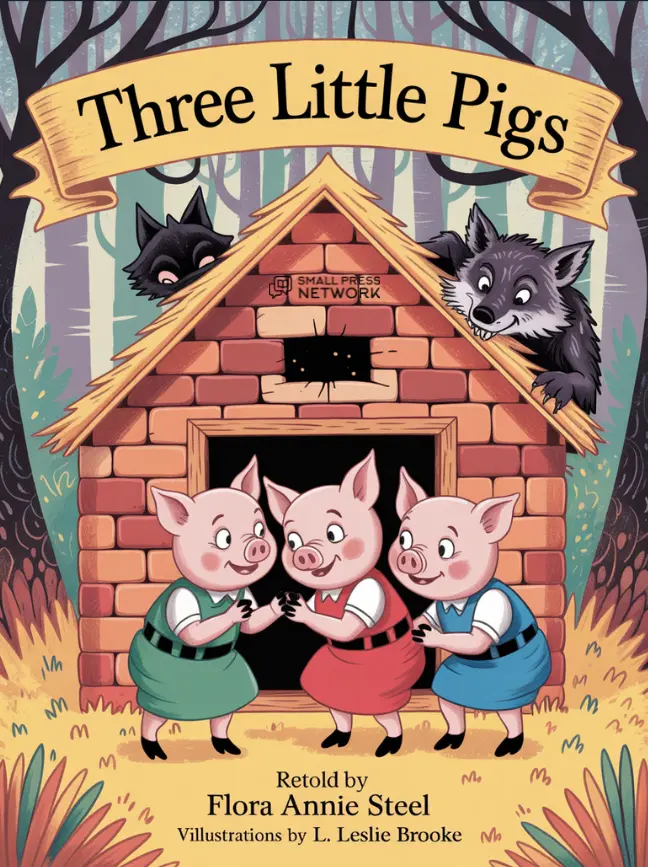CHAPTER IV
CHANGE OF GATE
It seemed that this garden, created in olden days to conceal wanton mys- teries, had been transformed and become fitted to shelter chaste mysteries.
There were no longer either arbors, or bowling greens, or tunnels, or grot- tos; there was a magnificent, dishevelled obscurity falling like a veil over all. Paphos had been made over into Eden. It is impossible to say what ele- ment of repentance had rendered this retreat wholesome. This flower–girl now offered her blossom to the soul. This coquettish garden, formerly de- cidedly compromised, had returned to virginity and modesty. A justice as- sisted by a gardener, a goodman who thought that he was a continuation of Lamoignon, and another goodman who thought that he was a continuation of Lenotre, had turned it about, cut, ruffled, decked, moulded it to gallantry; nature had taken possession of it once more, had filled it with shade, and had arranged it for love.
There was, also, in this solitude, a heart which was quite ready. Love had only to show himself; he had here a temple composed of verdure, grass, moss, the sight of birds, tender shadows, agitated branches, and a soul made of sweetness, of faith, of candor, of hope, of aspiration, and of illusion.
Cosette had left the convent when she was still almost a child; she was a little more than fourteen, and she was at the "ungrateful age"; we have al- ready said, that with the exception of her eyes, she was homely rather than pretty; she had no ungraceful feature, but she was awkward, thin, timid and bold at once, a grown–up little girl, in short.
Her education was finished, that is to say, she has been taught religion, and even and above all, devotion; then "history," that is to say the thing that bears that name in convents, geography, grammar, the participles, the kings of France, a little music, a little drawing, etc.; but in all other respects she was utterly ignorant, which is a great charm and a great peril. The soul of a young girl should not be left in the dark; later on, mirages that are too abrupt and too lively are formed there, as in a dark chamber. She should be gently and discreetly enlightened, rather with the reflection of realities than with their harsh and direct light. A useful and graciously austere half–light which dissipates puerile fears and obviates falls. There is nothing but the maternal instinct, that admirable intuition composed of the memories of the virgin and the experience of the woman, which knows how this half–light is to be created and of what it should consist.
Nothing supplies the place of this instinct. All the nuns in the world are not worth as much as one mother in the formation of a young girl's soul.
Cosette had had no mother. She had only had many mothers, in the plural.
As for Jean Valjean, he was, indeed, all tenderness, all solicitude; but he was only an old man and he knew nothing at all.
Now, in this work of education, in this grave matter of preparing a woman for life, what science is required to combat that vast ignorance which is called innocence!
Nothing prepares a young girl for passions like the convent. The convent turns the thoughts in the direction of the unknown. The heart, thus thrown back upon itself, works downward within itself, since it cannot overflow, and grows deep, since it cannot expand. Hence visions, suppositions, con- jectures, outlines of romances, a desire for adventures, fantastic construc- tions, edifices built wholly in the inner obscurity of the mind, sombre and secret abodes where the passions immediately find a lodgement as soon as the open gate permits them to enter. The convent is a compression which, in order to triumph over the human heart, should last during the whole life.
On quitting the convent, Cosette could have found nothing more sweet and more dangerous than the house in the Rue Plumet. It was the continua- tion of solitude with the beginning of liberty; a garden that was closed, but a nature that was acrid, rich, voluptuous, and fragrant; the same dreams as in the convent, but with glimpses of young men; a grating, but one that opened on the street.
Still, when she arrived there, we repeat, she was only a child. Jean Val- jean gave this neglected garden over to her. "Do what you like with it," he said to her. This amused Cosette; she turned over all the clumps and all the stones, she hunted for "beasts"; she played in it, while awaiting the time when she would dream in it; she loved this garden for the insects that she found beneath her feet amid the grass, while awaiting the day when she would love it for the stars that she would see through the boughs above her head.
And then, she loved her father, that is to say, Jean Valjean, with all her soul, with an innocent filial passion which made the goodman a beloved and charming companion to her. It will be remembered that M. Madeleine had been in the habit of reading a great deal. Jean Valjean had continued this practice; he had come to converse well; he possessed the secret riches and the eloquence of a true and humble mind which has spontaneously cultivat- ed itself. He retained just enough sharpness to season his kindness; his mind was rough and his heart was soft. During their conversations in the Luxem- bourg, he gave her explanations of everything, drawing on what he had read, and also on what he had suffered. As she listened to him, Cosette's eyes wandered vaguely about.
This simple man sufficed for Cosette's thought, the same as the wild gar- den sufficed for her eyes. When she had had a good chase after the butter- flies, she came panting up to him and said: "Ah! How I have run!" He kissed her brow.
Cosette adored the goodman. She was always at his heels. Where Jean Valjean was, there happiness was. Jean Valjean lived neither in the pavilion nor the garden; she took greater pleasure in the paved back courtyard, than in the enclosure filled with flowers, and in his little lodge furnished with straw–seated chairs than in the great drawing–room hung with tapestry, against which stood tufted easy–chairs. Jean Valjean sometimes said to her, smiling at his happiness in being importuned: "Do go to your own quarters!
Leave me alone a little!"
She gave him those charming and tender scoldings which are so graceful when they come from a daughter to her father.
"Father, I am very cold in your rooms; why don't you have a carpet here and a stove?"
"Dear child, there are so many people who are better than I and who have not even a roof over their heads."
"Then why is there a fire in my rooms, and everything that is needed?"
"Because you are a woman and a child."
"Bah! must men be cold and feel uncomfortable?"
"Certain men."
"That is good, I shall come here so often that you will be obliged to have
a fire."
And again she said to him:—
"Father, why do you eat horrible bread like that?"
"Because, my daughter."
"Well, if you eat it, I will eat it too."
Then, in order to prevent Cosette eating black bread, Jean Valjean ate white bread.
Cosette had but a confused recollection of her childhood. She prayed morning and evening for her mother whom she had never known. The Thenardiers had remained with her as two hideous figures in a dream. She remembered that she had gone "one day, at night," to fetch water in a forest.
She thought that it had been very far from Paris. It seemed to her that she had begun to live in an abyss, and that it was Jean Valjean who had rescued her from it. Her childhood produced upon her the effect of a time when there had been nothing around her but millepeds, spiders, and serpents.
When she meditated in the evening, before falling asleep, as she had not a very clear idea that she was Jean Valjean's daughter, and that he was her fa- ther, she fancied that the soul of her mother had passed into that good man and had come to dwell near her.
When he was seated, she leaned her cheek against his white hair, and dropped a silent tear, saying to herself: "Perhaps this man is my mother."
Cosette, although this is a strange statement to make, in the profound ig- norance of a girl brought up in a convent,—maternity being also absolutely unintelligible to virginity,—had ended by fancying that she had had as little mother as possible. She did not even know her mother's name. Whenever she asked Jean Valjean, Jean Valjean remained silent. If she repeated her question, he responded with a smile. Once she insisted; the smile ended in a tear.
This silence on the part of Jean Valjean covered Fantine with darkness.
Was it prudence? Was it respect? Was it a fear that he should deliver this name to the hazards of another memory than his own?
So long as Cosette had been small, Jean Valjean had been willing to talk to her of her mother; when she became a young girl, it was impossible for him to do so. It seemed to him that he no longer dared. Was it because of Cosette? Was it because of Fantine? He felt a certain religious horror at let- ting that shadow enter Cosette's thought; and of placing a third in their des- tiny. The more sacred this shade was to him, the more did it seem that it was to be feared. He thought of Fantine, and felt himself overwhelmed with silence.
Through the darkness, he vaguely perceived something which appeared to have its finger on its lips. Had all the modesty which had been in Fantine, and which had violently quitted her during her lifetime, returned to rest upon her after her death, to watch in indignation over the peace of that dead woman, and in its shyness, to keep her in her grave? Was Jean Valjean un- consciously submitting to the pressure? We who believe in death, are not among the number who will reject this mysterious explanation.
Hence the impossibility of uttering, even for Cosette, that name of
Fantine.
One day Cosette said to him:—
"Father, I saw my mother in a dream last night. She had two big wings.
My mother must have been almost a saint during her life."
"Through martyrdom," replied Jean Valjean.
However, Jean Valjean was happy.
When Cosette went out with him, she leaned on his arm, proud and hap- py, in the plenitude of her heart. Jean Valjean felt his heart melt within him with delight, at all these sparks of a tenderness so exclusive, so wholly sat- isfied with himself alone. The poor man trembled, inundated with angelic joy; he declared to himself ecstatically that this would last all their lives; he told himself that he really had not suffered sufficiently to merit so radiant a bliss, and he thanked God, in the depths of his soul, for having permitted him to be loved thus, he, a wretch, by that innocent being.





